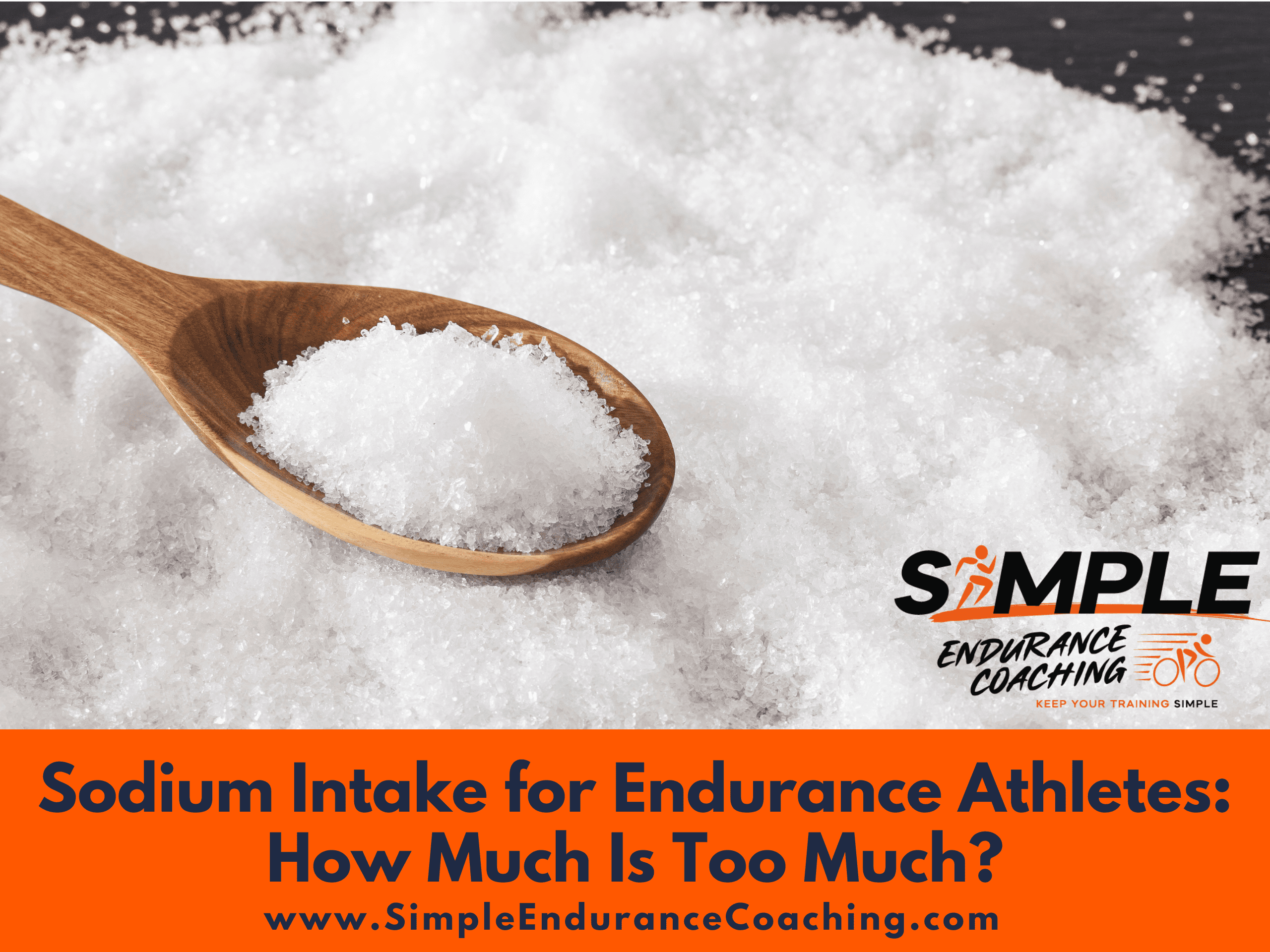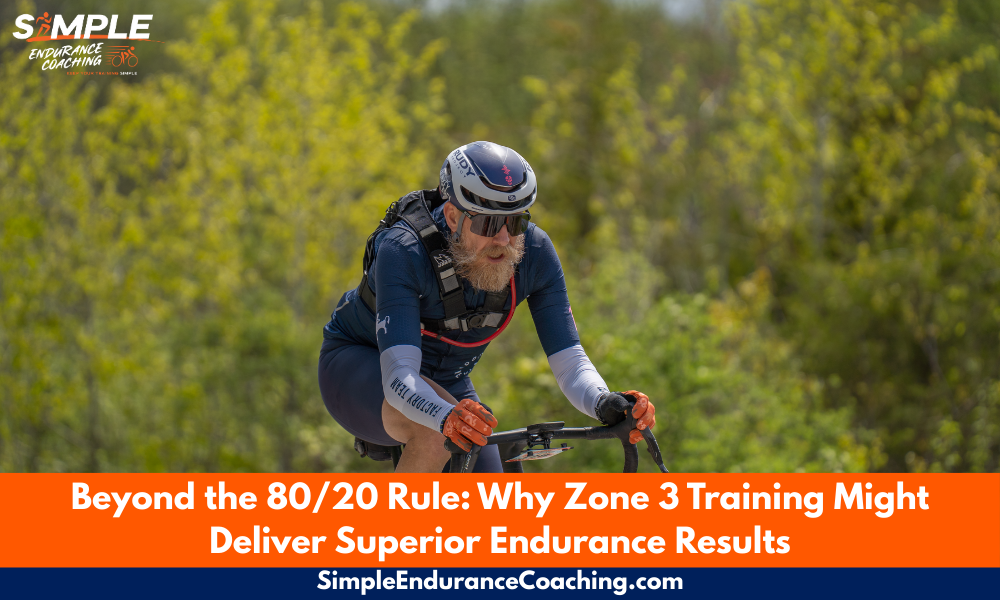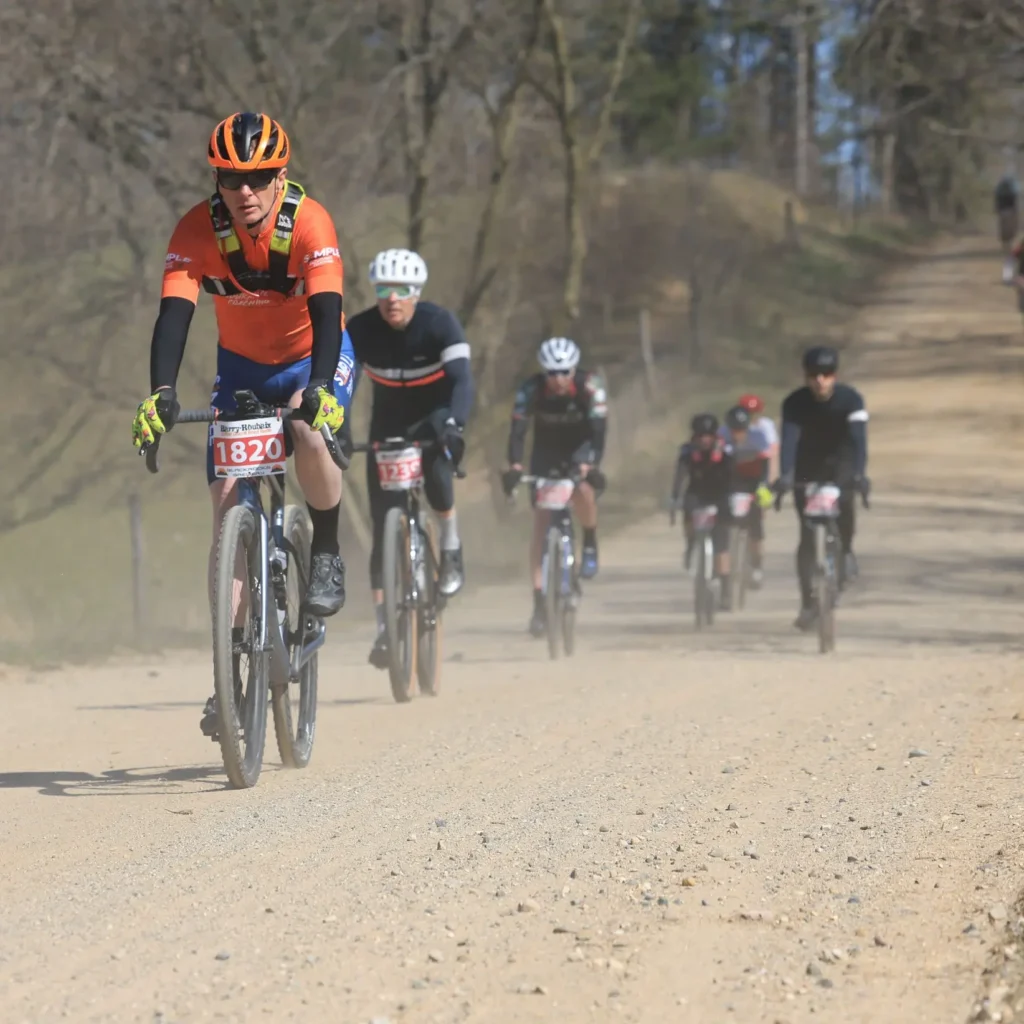I’m working with one of my junior athletes who’s been struggling to eat enough calories to fuel his riding.
We tracked his intake through a fitness app, and one of the surprising things we found was some very high sodium levels from processed foods.
As an endurance athlete, you know the importance of hydration and electrolytes for optimal performance.
Sodium, one of the key electrolytes, plays a crucial role in maintaining fluid balance, muscle function, and nerve signaling.
But with varying levels of sodium loss through sweat and the potential for excess consumption through processed foods, how much sodium should you really be consuming each day?
Striking the right balance between getting enough sodium to support your training and avoiding overconsumption is key to staying healthy and performing your best.

Why Sodium Is Essential for Endurance Athletes
Sodium is a critical mineral for athletes, especially those who train for extended periods or in hot and humid conditions.
During exercise, particularly in endurance sports, your body loses sodium through sweat.
This electrolyte helps maintain the balance of fluids in your cells, supports muscle contractions, and may prevent cramping.
For long training sessions or races lasting over 90 minutes, sodium replacement becomes essential to prevent dehydration and electrolyte imbalances.
Athletes can lose anywhere from 500 to 2,000 mg of sodium per liter of sweat, and sweat rates can vary from 1-3 liters per hour.
Depending on how much you sweat, this means you might need to replace between 300-600 mg of sodium every hour during extended exercise. Sign Up For a Virtual Coffee Let’s talk about your nutrition to fuel performance
The Problem with Too Much Sodium
While it’s crucial to replenish the sodium lost through sweat, the other side of the coin is sodium overconsumption, primarily through processed foods.
Foods like snacks, fast food, canned soups, and even some sports drinks can drive up your daily sodium intake without you even realizing it.
Health Risks of Excessive Sodium Intake
Consuming too much sodium can have a range of negative effects on your health, even if you’re an active athlete:
- Increased blood pressure: High sodium levels can lead to elevated blood pressure, increasing the risk of heart disease and stroke later in life, even for young athletes.
- Kidney strain: The kidneys work to filter out excess sodium. Over time, a high-sodium diet can lead to kidney damage and increase the risk of kidney stones.
- Water retention: Excess sodium can cause the body to retain too much water, leading to bloating and potentially masking dehydration symptoms during exercise.
- Nutrient displacement: A diet high in processed, sodium-rich foods may displace healthier options like fruits, vegetables, and whole grains, which provide vital nutrients for recovery and overall health.
The Dangers of Too Little Sodium
On the flip side, not getting enough sodium can also pose significant risks for endurance athletes:
- Hyponatremia: This condition occurs when sodium levels in the blood are too low, often due to excessive water intake without adequate sodium replacement during long exercise sessions. Hyponatremia can cause nausea, headache, confusion, and, in severe cases, be life-threatening.
- Muscle cramps and fatigue: Without enough sodium to support muscle contractions and fluid balance, athletes may experience cramping, early fatigue, and poor performance. Cramping, though, might not be as related to electrolyte imbalance as previously thought.
What the Research Says: Finding the Right Balance
Research shows that both excessive and inadequate sodium intake can harm athletic performance and long-term health.
While it’s important to replenish the sodium lost through sweat during training, it’s equally crucial to avoid regularly consuming too much sodium through a diet heavy in processed foods.
For the general population, most health organizations recommend 1,500 to 2,300 mg of sodium per day.
However, endurance athletes often require more on heavy training days, sometimes 3,000 to 7,000 mg per day, depending on sweat rate and environmental conditions.
How Endurance Athletes Can Optimize Sodium Intake
- Know your sweat rate: Start by calculating your sweat rate to determine how much sodium you need to replace during exercise. You can do this by weighing yourself before and after workouts to estimate how much fluid you lose per hour.
- Monitor sodium intake from sports drinks: Use sports drinks with added sodium wisely, particularly in long sessions or hot conditions. Aim to consume around 300-600 mg of sodium per hour during prolonged exercise.
- Limit processed foods: Stick to whole, nutrient-dense foods for your daily meals. Processed foods often contain hidden sodium, which can lead to overconsumption.
- Hydrate smartly: Make sure you’re balancing water and sodium intake, especially during long-duration events. Drinking too much plain water without replacing sodium can lead to dangerous imbalances like hyponatremia.
- Listen to your body: Be mindful of signs of both dehydration and sodium deficiency, such as dizziness, confusion, cramps, or extreme fatigue. Adjust your hydration and sodium intake accordingly.
Three things to know about sodium intake for endurance athletes
- Strike the right balance: Sodium is crucial for endurance athletes, but both too little and too much can have negative effects, so balance is essential.
- Understand your sweat rate: Knowing how much sodium you lose through sweat helps you replace it effectively during exercise.
- Manage sodium intake: Be mindful of sodium sources from sports drinks and food, while avoiding processed, high-sodium foods to ensure optimal fueling for performance and recovery.
Need more?
Unlock the secrets to mastering gravel racing with our FREE Guide to Gravel Racing! Get yours here.
BOOK A CALL so we can discuss your goals, answer questions, and talk about making your endurance training more effective, fun, and Simple.
Paul Warloski is a:
- USA Cycling Level 1 Advanced Certified Coach
- RRCA Running Coach
- Training Peaks Level 2 Coach
- RYT-200 Yoga Instructor
- Certified Personal Trainer
- Certified Nutrition Advisor




